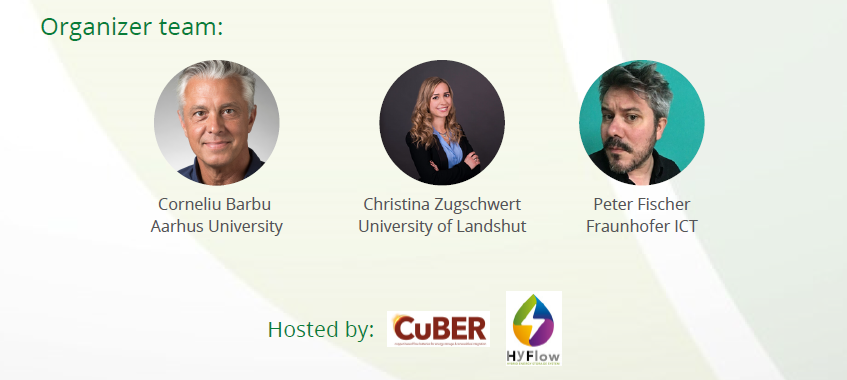FLORES workshop on digital twins for flow batteries - a roadmap toward redox flow battery passport
The European Battery Regulation foresees monitoring of batteries on their global warming potential and utilization of critical raw materials. FLORES, a network of 13 EU-funded projects, invites speakers to show best practice examples from Lithium-Ion battery applications and other areas to define a roadmap for redox flow batteries towards a battery passport.
Oplysninger om arrangementet
Tidspunkt

How can European academia pave the way for standardized LCA/virtual battery twins?
The European Battery Regulation foresees monitoring of batteries regarding their global warming potential and utilization of critical raw materials. For this, each industrial battery above 2 kWh must have a battery passport. With the data generated by the battery passport, battery models will be fed to achieve real-time data about the global warming potential of the battery and the use-time of critical raw materials. This should enable consumers to choose the most sustainable battery solution and put pressure on reducing critical materials, and should also enable reuse and recycling approaches, such as second-life applications.
The prerequisite for such a battery passport is a virtual twin of a battery and a standardized way to define global warming potential for batteries along the whole lifecycle of a battery. For Lithium Ion Batteries (LIB), standardized life cycle assessment as well as virtual twins are already under development. For redox flow batteries, no such efforts have been made so far.
In this workshop, the FLORES network will showcase best practice examples from LIB and tries to define a roadmap for RFB to come to a redox flow battery passport.
Programme
| 08.30 – 08.45 | Welcome and Introduction for the day Invited speaker from the European Union and overview of the Battery Passport activities for flow batteries | Peter Fischer – Fraunhofer ICT Georgios Bokas – CINEA Energy Eglė Karečkaitė – Flow Batteries Europe |
| 08.45 – 09.15 | Setting the targets for the workshop; Applications, market and life cycle review for flow batteries | Peter Fischer – Fraunhofer ICT Marie-Noëlle Pons – CNRS-Université de Lorraine |
| 09.15 – 09.45 | Requirements for the Battery Passport and other digital product passports | Christiane Plociennik - German Research Centre for artificial Intelligence Kaiserslautern |
| 09.45 – 10.15 | Introducing Battery Pass project: advancing the EU Battery Passport for sustainable industry ecosystems | Tilmann Vahle - SYSTEMIQ GmbH |
| 10.15 – 10.30 | Coffee Break | |
| 10.30 – 11.00 | A Review of digital Twins | Prof. Dr. Peter Gorm Larsen - Aarhus University |
| 11.00 – 11.30 | Implementation of Digital Twin for Lithium-ion Batteries: Use Cases and Potential | Soumya Singh – Fraunhofer IPA |
| 11.30 – 12.00 | Hybrid Digital Twins - Leveraging Physics and Data | Raja Badrinarayanan - ANSYS |
| 12.00 – 12.45 | Lunch Break | |
| 12.45 – 13.15 | The value of digital twins for battery safety prediction and performance optimization | Akrem Mouffouk - Gamma Technologies |
| 13.15 – 13.45 | Passport to the Grid: Pre-validating battery performance with digital twins | Sergio Costa - Typhoon HIL GmbH |
Workshop
| 13.45 – 14.00 | Introduction to workshop objectives, outcome and impact | Corneliu Barbu – Aarhus University Peter Fischer – Fraunhofer ICT Christina Schubert – University of Landshut |
| 14.00 – 16.15 | Part 1 – Life Cycle Assessment – Corneliu Barbu Part 2 – Battery models for virtual twins - Christina Schubert | Corneliu Barbu – Aarhus University Christina Schubert – University of Landshut |
| 16.15 – 17.00 | Discussion of the results of the two working groups – formulation of necessary steps towards a roadmap | Corneliu Barbu – Aarhus University Peter Fischer – Fraunhofer ICT Christina Schubert – University of Landshut |
